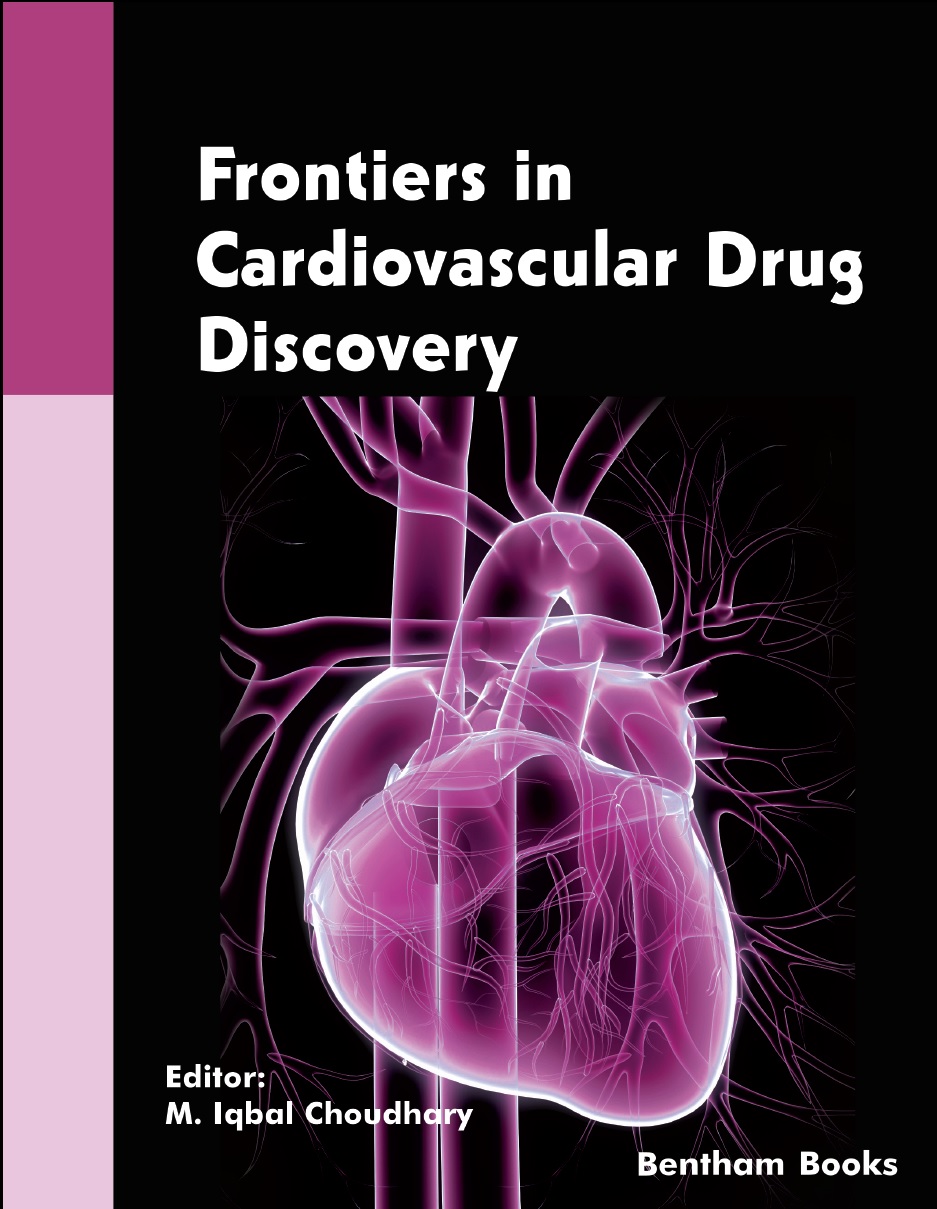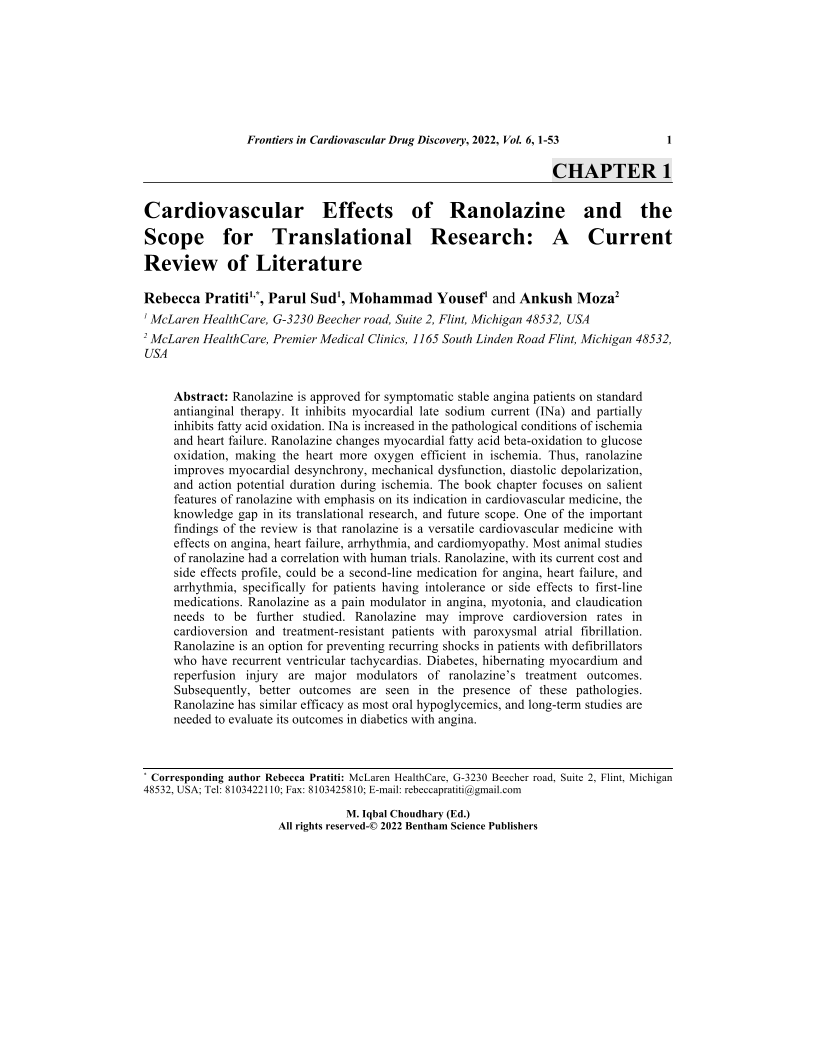Cardiovascular Effects of Ranolazine and the Scope for Translational Research: A Current Review of Literature

- Authors: Rebecca Pratiti1, Parul Sud2, Mohammad Yousef3, Ankush Moza4
-
View Affiliations Hide Affiliations1 McLaren HealthCare, G 3230 Beecher road, Suite 2, Flint, Michigan 48532, USA 2 McLaren HealthCare, G-3230 Beecher road, Suite 2, Flint, Michigan 48532, USA 3 McLaren HealthCare, G-3230 Beecher road, Suite 2, Flint, Michigan 48532, USA 4 McLaren HealthCare, Premier Medical Clinics, 1165 South Linden Road Flint, Michigan 48532, USA
- Source: Frontiers in Cardiovascular Drug Discovery: Volume 6 , pp 1-53
- Publication Date: November 2022
- Language: English
Cardiovascular Effects of Ranolazine and the Scope for Translational Research: A Current Review of Literature, Page 1 of 1
< Previous page | Next page > /docserver/preview/fulltext/9789815036909/chapter-1-1.gif
Ranolazine is approved for symptomatic stable angina patients on standard antianginal therapy. It inhibits myocardial late sodium current (INa) and partially inhibits fatty acid oxidation. INa is increased in the pathological conditions of ischemia and heart failure. Ranolazine changes myocardial fatty acid beta-oxidation to glucose oxidation, making the heart more oxygen efficient in ischemia. Thus, ranolazine improves myocardial desynchrony, mechanical dysfunction, diastolic depolarization, and action potential duration during ischemia. The book chapter focuses on salient features of ranolazine with emphasis on its indication in cardiovascular medicine, the knowledge gap in its translational research, and future scope. One of the important findings of the review is that ranolazine is a versatile cardiovascular medicine with effects on angina, heart failure, arrhythmia, and cardiomyopathy. Most animal studies of ranolazine had a correlation with human trials. Ranolazine, with its current cost and side effects profile, could be a second-line medication for angina, heart failure, and arrhythmia, specifically for patients having intolerance or side effects to first-line medications. Ranolazine as a pain modulator in angina, myotonia, and claudication needs to be further studied. Ranolazine may improve cardioversion rates in cardioversion and treatment-resistant patients with paroxysmal atrial fibrillation. Ranolazine is an option for preventing recurring shocks in patients with defibrillators who have recurrent ventricular tachycardias. Diabetes, hibernating myocardium and reperfusion injury are major modulators of ranolazine's treatment outcomes. Subsequently, better outcomes are seen in the presence of these pathologies. Ranolazine has similar efficacy as most oral hypoglycemics, and long-term studies are needed to evaluate its outcomes in diabetics with angina.
-
From This Site
/content/books/9789815036909.chapter-1dcterms_subject,pub_keyword-contentType:Journal -contentType:Figure -contentType:Table -contentType:SupplementaryData105

